In the wonderful world of scientific research, authorship as well as publication are crucial aspects in which determine the dissemination of data and recognition of contributors. However , ethical considerations associated with authorship practices have become increasingly complex, often leading to arguments over fair credit as well as recognition for scientific makers. This article explores the honorable dilemmas and challenges connected with authorship and publication throughout academic research, highlighting the need for ensuring fairness and openness in the attribution of credit score to those who contribute to methodical endeavors.
One of the fundamental ethical principles in authorship will be the concept of intellectual contribution, wherein individuals who make significant mental contributions to a research project are entitled to be listed as editors. However , determining the amount of each author’s contribution could be subjective and may vary determined by disciplinary norms, cultural techniques, and institutional policies. Consequently, disputes over authorship attribution often arise, particularly in cases where multiple individuals contribute to different facets of a research project or while power dynamics and hierarchical structures https://jason-morton40.medium.com/the-true-reason-aliens-havent-shown-themselves-to-the-world-48b212cf755d influence decision-making regarding authorship.
Moreover, the strain to publish in academic journals and the emphasis on authorship for a measure of academic productivity can make incentives for unethical behaviour, such as gift authorship and also ghostwriting. Gift authorship, everywhere individuals are listed as authors despite making minimal or any contribution to the research, undermines the integrity of the authorship process and diminishes the credibility of published work. Similarly, ghostwriting, where those who have00 made substantial contributions to a research project are not acknowledged as authors, deprives them of acknowledgement and career advancement opportunities.
Another ethical consideration in authorship and publication is the problem of author order, which will carry significant weight regarding perceived contribution and recognition. Traditionally, the first author is normally considered the primary contributor towards the research, while the last writer is typically the senior specialist or principal investigator who have provided oversight and advice. However , the order associated with authorship may not always accurately reflect the actual contributions of each one author, leading to disputes and also misunderstandings regarding individual functions and responsibilities.
Furthermore, the rise of collaborative analysis and interdisciplinary collaborations has introduced new challenges in authorship and publication practices. Along with research teams often containing members from diverse professions, institutions, and geographic destinations, determining authorship can be especially challenging. Effective communication, visibility, and collaboration are essential to making sure that all contributors are correctly acknowledged and credited because of their contributions.
To address these honest challenges, it is essential for research workers, academic institutions, and paper publishers to adhere to established recommendations and best practices for authorship and publication. Organizations for example the International Committee of Healthcare Journal Editors (ICMJE) and the Committee on Publication Integrity (COPE) have developed guidelines as well as recommendations to promote integrity, justness, and transparency in authorship practices. These guidelines highlight the importance of clearly defining authorship criteria, disclosing conflicts interesting, and acknowledging contributions through individuals who do not meet the criteria to get authorship but have made significant contributions to the research.
In addition , fostering a culture of collaboration, mentorship, and accountability within research communities can assist mitigate ethical issues associated with authorship and publication. Experts should engage in open in addition to honest discussions about authorship expectations, responsibilities, and charitable contributions from the outset of a research project. Superiors and mentors have a duty to educate trainees and youngster researchers about ethical authorship practices and to advocate intended for fair and equitable remedying of all contributors.
In conclusion, honest considerations in authorship and also publication are paramount to making sure fairness, transparency, and ethics in scientific research. By adhering to established guidelines, promoting a culture of collaboration and accountability, and advertising open communication and visibility, researchers, academic institutions, and journal publishers can help reduce ethical challenges and ensure that contributors receive fair credit rating and recognition for their medical contributions. As the scientific community continues to evolve, it is essential to support ethical standards and values that uphold the condition and credibility of scientific research.
